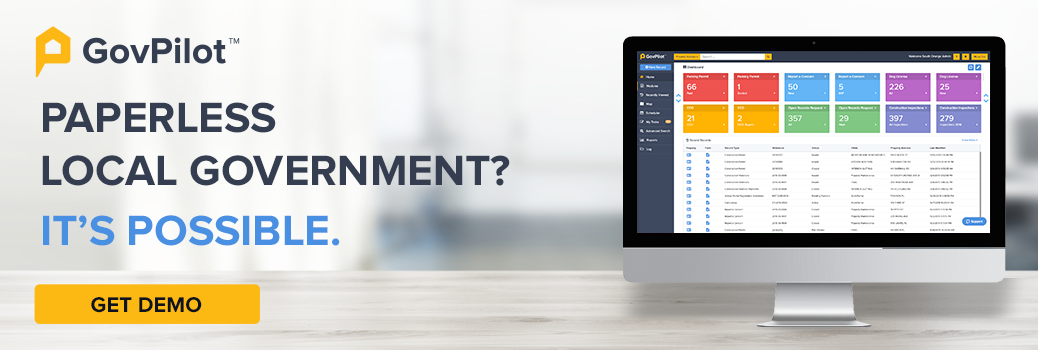Local government officials often face notable challenges when it comes to connecting with their constituents. Despite their dedication and hard work, these officials can struggle to engage meaningfully with the people they serve.
This disconnect can stem from a variety of factors, including tight schedules, limited access to resources, and the volume of people they need to interact with. The complexity of addressing diverse community needs and the difficulties in reaching all segments of the population can further exacerbate this issue.
Why is it crucial to address this problem?
At its core, effective communication and engagement are essential for fostering trust, ensuring transparency, and building a collaborative relationship between officials and the community.
Read on to learn about why when citizens feel heard and valued, they are more likely to participate in local governance, support initiatives, and contribute to a more vibrant, cohesive community.
Table Of Contents: What To Expect
- What Makes A Meaningful Connection With A Constituent?
- How Can I Connect With Constituents?
- A Deeper Understanding: Conversations To Have With Constituents
What Makes A Connection Meaningful?
When looking to create a connection with your constituents, it is important to understand what makes up this meaningful connection.
This connection will oftentimes go beyond superficial interactions, opting for more genuine engagement, active listening, and a level of respect that goes both ways. As a local government official it is important to invest time in understanding the differing needs, concerns, and goals of the communities that you serve.
This relationship is one that is built upon open two way communication channels where citizens feel comfortable enough to voice their own opinion and receive constructive responses. The pillar of this connection is trust. Officials need to demonstrate a high level of transparency and follow through on the commitments they've made to show that they value their community and the feedback they receive from it.
Meaningful connections are strengthened when local government officials make an effort to be visible and accessible to their community. They can achieve this by participating in local gatherings such as town halls or outreach events and addressing key issues directly.
Read our article on How to Embrace Citizen Feedback here!
How Can I Connect With Constituents ?
Effectively connecting with your community is a necessity as a public representative. To build fortified, meaningful relationships, a multi leveled approach is important. A combination of the following methods can help to enable a comprehensive and responsive approach to constituent engagement, fostering a sense of trust and thoughtfulness within a community:
-
Social Media
Connecting with constituents through social media offers a dynamic and interactive way to engage. By leveraging popular services such as Twitter, Facebook, Instagram, and LinkedIn, you have the ability to reach a broad audience within an instant.
Social media platforms allow for real time communication, providing an opportunity to share updates, get feedback, and respond directly to the concerns of your community. Look to engage with your community with consistent posts, live videos, and interactive polls. This is an easy way to achieve transparency as well as stay informed on the issues that most directly affect your audience.
Check out our Guide To Creating Content For Your Local Government Website.
-
Public Meetings
Hosting public meetings is a traditional yet effective way to connect with your community face to face. These types of gatherings provide a structured environment where community members can share their experiences, ask questions, and discuss local issues directly with local government leaders.
Public meetings can take on various forms, including town halls, forums, and committee hearings, each offering the chance for healthy constructive dialogue. By attending and actively participating in these meetings, you demonstrate your commitment to addressing the needs and concerns of your constituents, building trust and allowing for a more informed and engaged community.
-
Public Community Events
Participating in public events such as fairs, parades, and local festivals, allows you to connect with constituents in a more informal setting. This gives the opportunity to engage with people outside the typical environment, building a different type of rapport and showing support for local traditions. By attending and being a participant in these gatherings, you can be a more valuable part of the community and gain insights into specific needs and interests.
-
Online Forums
Discussion boards and other types of online forums give a virtual space for constituents to participate in deep conversations and share their views on various topics. These types of platforms allow you to get a great understanding of what constituents want, since some may feel more comfortable voicing their opinion on an online board rather than in person. Participation can help answer questions directly, and can help to start a broader and more inclusive dialogue.
Read our guide on 5 Ways Governments Can Encourage Increased Voter Turnout here!
A Deeper Understanding: Conversations To Have With Constituents
Gaining an understanding of what your constituents want and need is way more than just surface level interactions. There needs to be meaningful conversations that reveal actual concerns, values, and aspirations of your community.
These need to go beyond routine back and forths, offering insight into issues that impact daily lives. It may feel difficult to know where to begin when trying to start these dialogues. Here is a list of some conversation starters that may be useful on the road to healthy connections with your community:
1. “What are the most important issues or concerns you currently have about our community?”
Asking constituents this question shows that you are looking to directly identify the issues that most affect your constituents. This means that you are willing to focus on aligning your actions with the wants and needs of the community.
This question gives your community a chance to share their perspective as well as provide valuable insight into the community at large. This approach also fosters a sense of involvement and validation among constituents, giving a clear sense that their voices are of value. Most of all, you are reinforcing your commitment to fighting the challenges within your community.
2. “How do you feel about the recent changes or developments in our city? Are there any improvements you would suggest?”
This question invites your community to give honest and constructive feedback on where they feel like your community is thriving and also falling short. Constituents are able to share their feelings on new policies, projects, or changes, providing a look into public sentiment and highlighting areas where changes may need to be made. This approach allows for not only a fine tune of strategies but also helps to better serve the community.
3. “Are there any local services or programs you think we could improve or expand to better serve our community?”
On a lighter note, you can ask this question to give constituents the chance to share their ideas for the community. This question taps into the living experience of residents, allowing them to discuss areas where additional services can be beneficial.
By allowing a forum for suggestions, you can gain actionable feedback that can guide to the improvement or expansion of many different areas of the community. This is a proactive way to fulfill gaps within your community while also giving constituents a sense of pride and ownership in the decisions being made.
Connect With Your Constituents With These Tips!
When government officials make a coordinated effort to connect with their citizens, the impact can be profound. Engaged communities are more likely to work together towards common goals, support local initiatives, and provide valuable feedback that can guide policy and decision-making. This engagement fosters a sense of ownership and responsibility among residents, leading to a more proactive and empowered citizenry.
In essence, the more connected officials are with their constituents, the more informed and effective their governance becomes, ultimately leading to a stronger, more resilient community. Book a consultation with GovPilot today to learn more about how we can improve your constituent engagement now and in the future!
Read On:
- Local Government Employee Appreciation Strategy: Employee Retention Tips What is Azure for Government? Everything to Know
- A Guide To SOC-2 Audits: Considerations for Local Governments from GovPilot
- 7 Government Cybersecurity Best Practices: Keep Data Secure & Prevent Ransomware Attacks
- Government Cloud: How Local Governments Can & Should Use the Cloud
- From Digital Animal Licenses to Pop-Up Rabies Clinics: How Your City Can Become More Pet-Friendly
- The Key To Managing Annual Licensing Renewals on Your Government Website
- The Benefits of Providing Employment and Skill Workshops For Citizens






